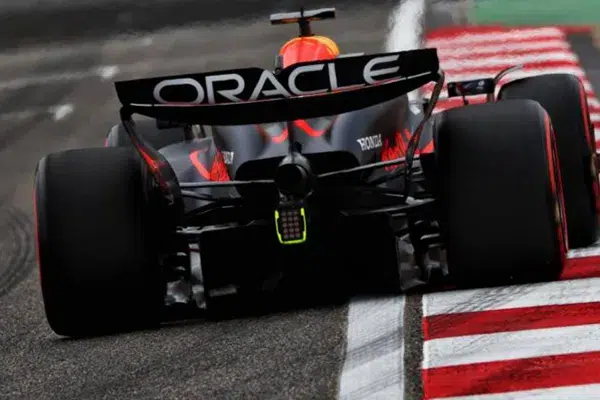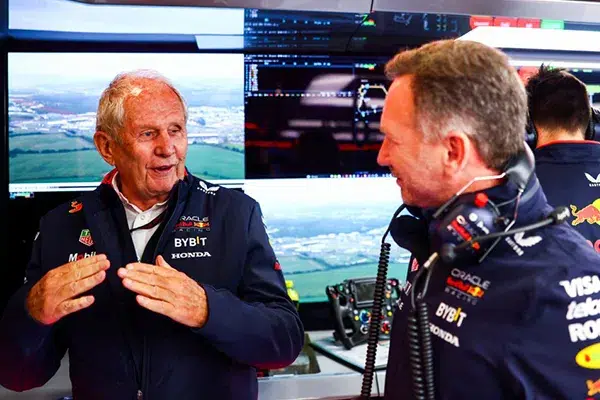Red Bull teams with Ford on 2026 engine, while Marko dismisses fears of Mercedes’ repeat dominance.
Dr. Helmut Marko has downplayed concerns about the overhaul of Formula 1 engine regulations in 2026 and the possibility that it could allow a manufacturer to gain an advantage like Mercedes in 2014.
The current 1.6-liter turbocharged V6 engines were introduced 10 years ago to replace the previous 2.4-liter V8s used from 2006 to 2013.
Mercedes was well-prepared for this new era, utilizing substantial resources well in advance to assemble a power unit that enabled the brand to dominate for many years.
The German team won 16 out of 19 races in 2014 to begin a streak that would lead to eight consecutive constructors’ championships, a record. Although Mercedes had a period of lesser success until its recent resurgence, it is considered well-positioned for the next era in 2026.
Mercedes is reportedly the furthest along in the development of the next-generation electric-focused power units compared to its rivals Ferrari, Honda, Audi, and Renault (if the French team maintains its power unit).
However, Marko is not worried that Mercedes might create a gap over the others as in 2014.
“I don’t think it will change the game like in 2014, where Mercedes had a 50 horsepower or more advantage,” Marko told GrandPrix247.
“The engine manufacturers know these engines, it’s just the balance between thermal and electric that’s changing. And resources have been limited for the engine manufacturers as well.”
“In the end, we really won’t know until the engines are at full power on the track in 2026, but so far, at Red Bull, we are on the right track.”
Red Bull has built a Powertrains division at its Milton Keynes site as it prepares to become an engine manufacturer for the first time in the team’s history.
Marko revealed that Dietrich Mateschitz had reservations about such a plan, which initially included a partnership with Porsche.
“Building our own F1 engine was a bold decision, but also very costly. Mr. Dietrich Mateschitz was therefore concerned. Firstly, whether we could do it alone. And secondly, about the costs. Other manufacturers were interested and contacted us to cooperate.”
“So, when Porsche came along, from a marketing standpoint, they would have been the ideal partner.”
“In the end, it didn’t work out because we had different views. How it should operate as part of a 50/50 partnership, it would never be easy.”
However, Red Bull’s engine plans were salvaged when Ford emerged as a viable alternative for the return of the American automotive giant to the sport.
“After deciding not to deal with Porsche, we found in Ford a very good partner who did not want to interfere in the race details because we are better at it. So, we have a partnership where Ford can bring knowledge and expertise. For example, on the battery side, etc.”
“But they are just supporting us and of course providing financial support. So, it’s a good cooperation. For now, we are on schedule with our engine program. Everything is on schedule. But the issue is that it’s a completely new regulation. 50% electric, 50% thermal.”
“Fuel will be a major factor. For the first time, we will use 100% synthetic fuel. And the other factor is how you will integrate battery management into the power unit. The final regulation isn’t there yet for that.”

- You may also like>Zak Brown’s Bold Claim: Red Bull Fears Max!
- Following us on>Facebook and>Twitter
Red Bull Confirms On-Track Engine Plans for 2026 Red Bull Confirms On-Track Engine Plans for 2026
